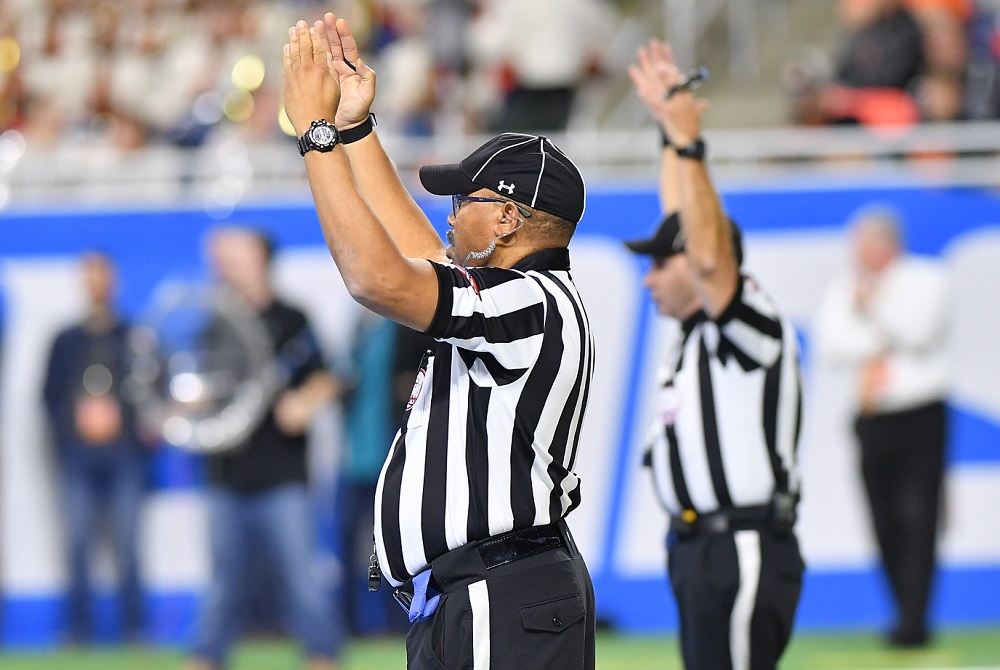
Risks & Rewards
May 7, 2012
When my terrific son was a college student, I suggested he get into sports officiating. You know, to earn some money, stay involved in sports, keep in shape. His response was “No. It’s not worth the hassle.” He didn’t want to subject himself to being criticized, heckled and second-guessed; and I couldn’t blame him.
Which told me then (and I’m reminded often) that sports officials are risk-takers. Men and women willing to step out and step up.
The best officials make the toughest calls at the tightest times in the competition. They’re risk-takers in ways mere spectators are not.
And in this so-called “modern world,” where people can sit comfortably at home and comment irritably on everything, and fans can text, tweet and transmit videos instantly, it has never taken more courage to be a sports official than it does today.
Tomorrow evening, for the 33rd consecutive year, the MHSAA hosts a banquet that honors our most veteran MHSAA registered officials. Officials who have reached the 20-, 30-, 40-, 45- and 50-year service milestones will be recognized; and Rockford’s Lyle Berry will receive the Vern L. Norris Award for a lifetime of grassroots contributions to high school sports officiating in Michigan.
It is one of the rare occasions when we ask officials, referees and judges to step out of the background and into the spotlight. Without any risk.

Be the Referee: Protocols & Mechanics
By
Geoff Kimmerly
MHSAA.com senior editor
August 26, 2021
“Be the Referee” is back for 2021-22 with MHSAA assistant director Brent Rice explaining how rules have reverted or been modified due to last year’s COVID-19 adjustments.
Be The Referee is a series of short messages designed to help educate people on the rules of different sports, to help them better understand the art of officiating, and to recruit officials.
Below is this week's segment – Protocols and Mechanics – Listen
Other than a few select instances, all MHSAA protocols, procedures and playing rules have returned to what they were pre-COVID.
This means that football team boxes will return to the area between the 25-yard lines, traditional ball-handling and other officials mechanics will return in all sports and postgame handshakes will be permitted as each school sees fit.
Additionally, there will be some rules modifications that were adopted during the pandemic that will likely be kept as part of the normal playing rules moving forward. The one that stands out for this upcoming fall season is that in volleyball, teams will not switch benches or sides of the net unless the referee determines that a team is at a disadvantage due to the layout of the facilities and obstructions.

